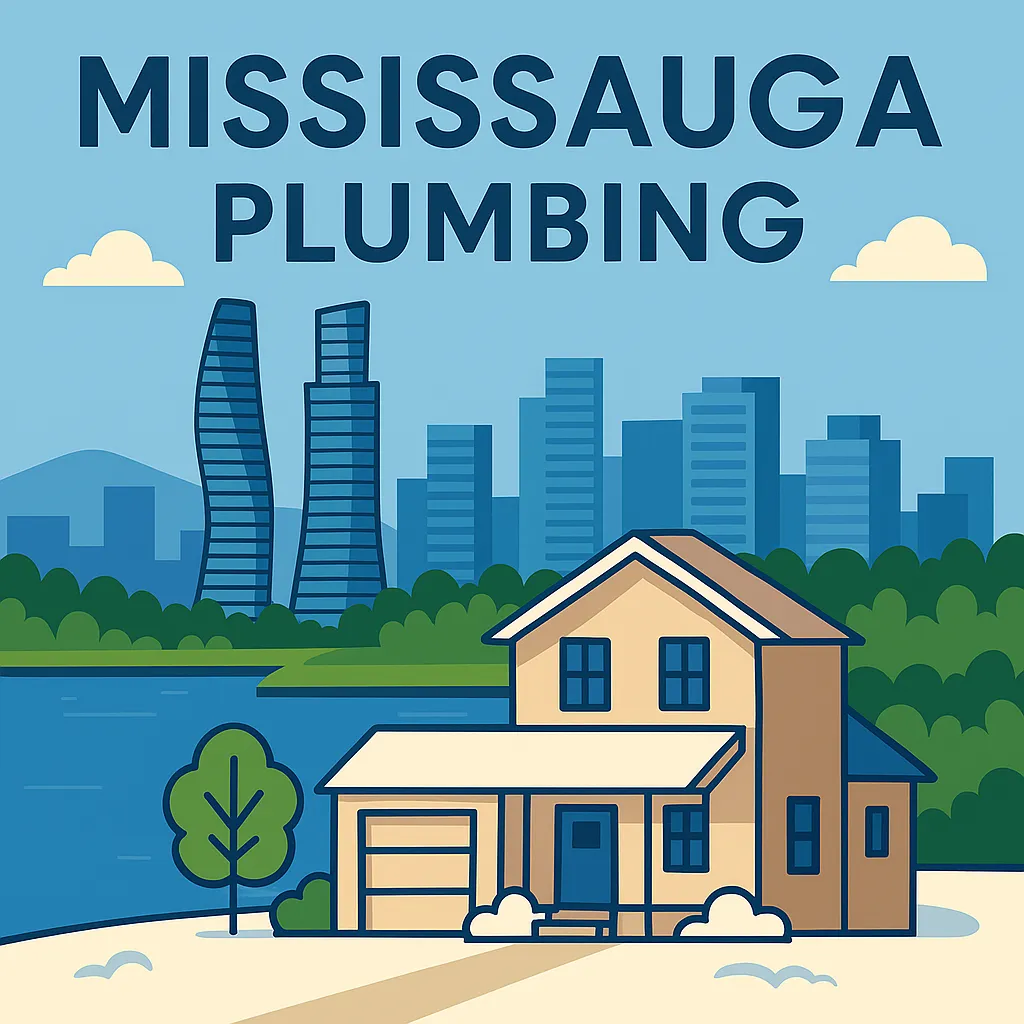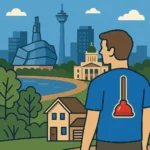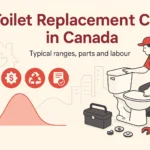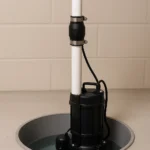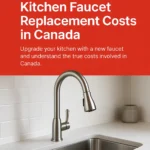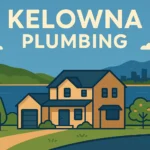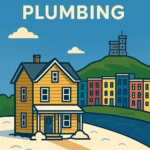Introduction
Mississauga, part of Ontario’s Region of Peel, is home to more than 720,000 residents and a wide range of housing — from historic Port Credit homes to modern condos around Square One. With water supplied from Lake Ontario and moderately hard mineral content, local plumbing systems face unique challenges. From clogged drains to basement flooding during summer storms, Mississauga homeowners need to understand how water quality, climate, and infrastructure affect their plumbing.
Water Source, Quality & Hardness
- Source: Drinking water for Mississauga comes from Lake Ontario, treated at the Lakeview and Lorne Park water treatment plants.
- Quality: The South Peel Drinking Water System consistently exceeds Ontario and federal standards, with compliance rates above 99% for safety. (Peel Region Report)
- Hardness: Water is moderately hard, about 7–7.6 grains per gallon (gpg). (Aquatell)
- Causes mineral buildup on fixtures and inside appliances.
- Dishwashers, kettles, and hot water tanks may wear faster without treatment.
- Many residents install water softeners or scale-resistant fixtures to reduce maintenance.
Housing Stock & Plumbing Systems
- Older homes (Port Credit, Cooksville): Some still use galvanized steel or clay sewer laterals, which are prone to corrosion and blockages.
- Suburban neighbourhoods (Streetsville, Meadowvale, Erin Mills): Mostly copper or PEX systems, but still affected by hard water scaling.
- Condos and high-rises (Square One area): Depend on shared plumbing stacks and booster pumps, which can cause widespread problems if they fail.
- Rural fringe properties: Some rely on private wells or septic tanks, requiring different maintenance than homes on city services.
Common Plumbing Issues in Mississauga
- Scale buildup from hard water — clogging aerators, staining fixtures, reducing appliance efficiency.
- Drain blockages — caused by grease, hair, and root intrusion in older clay sewer laterals.
- Basement flooding — heavy summer storms often overwhelm storm sewers, especially in older neighbourhoods.
- Hot water tank wear — sediment buildup shortens lifespan and reduces efficiency.
- Permit-related delays — homeowners may start renovations without realizing plumbing permits are required.
Seasonal Considerations
- Winter: Some frozen pipe risk, especially for uninsulated garage or crawlspace lines.
- Spring: Melting snow can cause seepage and basement leaks.
- Summer: Severe thunderstorms raise the risk of basement flooding and sewer backups.
- Year-round: Mineral scaling from hard water is always present.
Plumbing Costs in Mississauga
Plumbing costs in Mississauga are in line with the Greater Toronto Area. Most plumbing companies charge a minimum service call of $300 before tax, which covers the first hour or inspection. After-hours or emergency work carries higher fees.
Typical Plumbing Prices in Mississauga
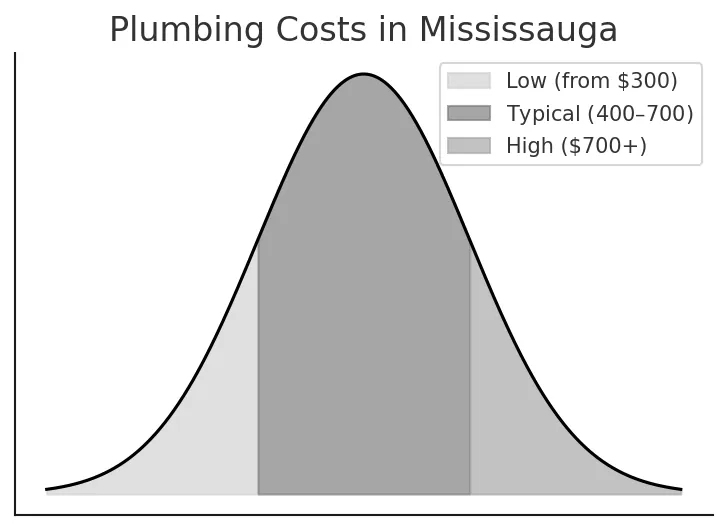
| Service | Low | Typical | High |
|---|---|---|---|
| Drain unclogging | $300 | $400 | $700+ |
| Faucet replacement | $300 | $450 | $850+ |
| Hot water tank replacement | $1,400 | $2,000 | $3,500+ |
| Emergency after-hours call | $450 | $700 | $1,200+ |
⚠️ Disclaimer: Prices are estimates. Final costs depend on the plumber, job complexity, permits, and parts.
Local Permits & Regulations
- Plumbing permits are required for new installations, drainage changes, and relocating fixtures.
- Routine “like-for-like” fixture swaps (e.g., faucet replacement in the same location) usually do not require a permit.
- The minimum residential building permit fee is $237, plus a $50 online submission fee. (City of Mississauga)
- Inspections are mandatory for work done under permit.
Case Study: Sewer Replacement in Cooksville
A Cooksville homeowner experienced repeated basement backups during summer storms due to an aging clay sewer lateral. In 2023, they replaced the clay line with PVC piping. The project cost around $5,500, including excavation and reconnection to the city line. Since the replacement, their basement has stayed dry even during heavy rainstorms.

FAQs
Is Mississauga’s water hard or soft?
It’s moderately hard (about 7 gpg). Scale buildup is common without a water softener.
Do I need a plumbing permit in Mississauga?
Yes, if you are changing piping, moving fixtures, or adding drainage. Small fixture replacements usually don’t need one.
How do I prevent basement flooding?
Install a sump pump and backwater valve, maintain gutters and downspouts, and check grading around your home.
What’s the biggest plumbing risk in Mississauga?
Clogged drains and basement flooding during storms are most common. Hard water scale is a year-round concern.
Tips for Mississauga Homeowners
- Install a water softener to reduce scaling.
- Flush hot water tanks annually.
- Inspect and clean drains regularly.
- Prepare for summer storms with flood prevention systems.
- Confirm permit requirements before starting any renovation.
Conclusion
Mississauga’s plumbing challenges include moderate hard water, aging infrastructure in older areas, and flood risks during summer storms. With proactive maintenance, permit compliance, and timely upgrades, homeowners can avoid costly emergencies and extend the life of their plumbing systems.
👉 Book a licensed plumber in Mississauga today at unclogit.com or call 604-496-1661.

